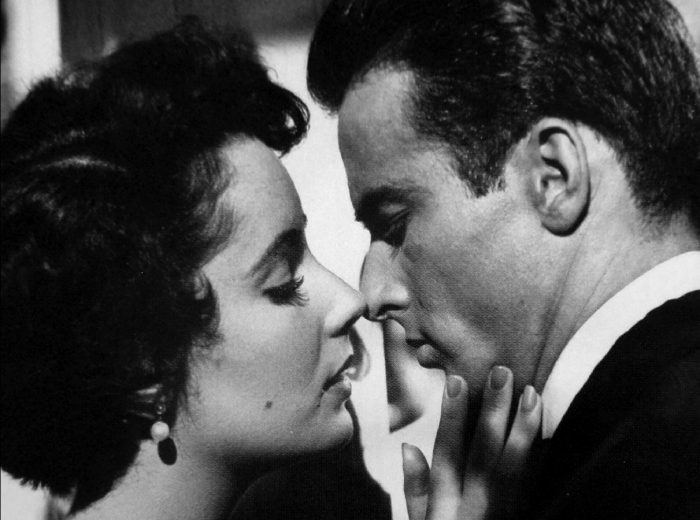He was five years my senior, and everyone I had been hanging around knew and loved (or feared) him.
Boy, did I feel special. I was young. I was quiet. I was hurting, and I was lonely. And he wanted me.
But he also wanted her and her and her. And her friend’s sister, too. I cannot count the number of times I had caught him cheating on me. Eventually, I would hear his cover story before someone could tell me that he’d done it again.
“If someone tells you that I did (this) it’s because I did (that) to them and they’re mad. So, don’t believe it.”
I would respond with some sort of, “Okay, yeah, I understand.” Excuse me while I put my blinders on.
Excuses, excuses, excuses. He was full of them.
“She’s in my bed because she’s sick, and I felt bad.”
“I have to spend the night because I said I would babysit.”
“You put those scratches on my back.”
“They’re just jealous because I’m with you, and they want to ruin that.”
Oh, and the worst classic, “I thought of you the whole time.”
(That one brought out the crazy in me. Please tell me that no one is foolish enough to repeat those words in sincerity anymore.)
I didn’t always believe him. But I believed it wouldn’t happen again. And again, and again, and again. At one point, I accepted that this was who he was, and I just wanted to no longer be lied to about it. I wasn’t going to leave. He could have whoever he wanted as long as he didn’t let go of me.
These toxic loves usually had a terrible childhood; they don’t know what love is, let alone how to. We want to be the exception, and they make us feel like we are (in the beginning).
In my case, he’d been high nearly his entire life. It wasn’t uncommon for days to turn into weeks without a visit or call. “I didn’t have a charger.” “I couldn’t find a ride.” He would return to sleep off his binge, and I welcomed him with excitement and open arms; and I would not let go, even when he’d disappear again. He knew I would be there, waiting for him to remember me.
His lies turned into my lies—my lies to myself, my lies to others, so they didn’t know what kind of life I was willingly accepting. My world revolved entirely around him. I left a few times throughout the years; I had even landed myself a great guy during one of these “breaks.” But, when it ended, I went back to him.
“You’re nothing without me. You can’t do this on your own. You’ll never have (this) or (that). I’m the best you’ll ever have. We’re fighting because we love each other enough to be so angry.”
These are just a few of the things I regularly heard. They stuck to my already low self-esteem. They grabbed me tightly and sank down like the largest anchor in the sea.
“You deserve so much better. Why are you with him?”
I can’t count the number of times others (myself included) had asked this question. I loved him. Or, so I thought. Apparently, I didn’t really know what love was either. I knew I felt special at times. I knew I would do anything for his approval, his admiration, his presence. I knew I had every excuse in the book as to why I was stuck.
“I was a victim.”
“He took advantage of me.”
“I loved him.”
But what was the real reason why? Why him? Why did I let myself be treated so poorly for such a long time?
Love had never really felt like a sensible answer, but it was the closest to an answer I could give. And now, I finally understood why I had attached myself to such a painfully toxic relationship. Seven years after I left, I finally got the answer to this question during an EMDR session. My session had begun completely unrelated to the topic but landed me at an insight that had been missing from me for 14 years.
He was a reflection of how I saw myself. He reflected everything I had subconsciously been feeling and thought I deserved, without realizing it.
At that moment, everything stopped spinning in my mind, and only one thing remained: the unsolved, cold-case mystery had finally been solved. What a relief it was to understand the “why” lurking underneath one of the most painful and shameful parts of my story. I had gone from victim to wisdom!
My therapist replied, “Interesting. Can you explain a little more?”
I told her how I had thought so low of myself when I met him. My home life left me feeling unwanted, unworthy, and lonely. Alcoholism, abuse, neglect, and abandonment were my reality at the time. When the damaged and toxic family situation worsened, so did my self-esteem.
As time went on, already waist-deep in the relationship that I’d been holding onto for dear life, his long-term predictability had given me the illusion of safety. None of this was love; all of it was a reflection of what I was feeling about myself and my life.
The feelings our relationship had given me were painful, but so was everything else I was going through. We were the perfect match, vibrationally. My wounds didn’t reflect the persistent voices that had been telling me I deserved better, so I didn’t believe them.
In the following minutes, after having reached this sudden realization, I assessed every other relationship I had been in. They all finally made sense—the emotional distance that I accepted, the compassion that I pushed away.
I was finally able to apply the phrase from Perks of Being a Wallflower, “We accept the love we think we deserve.”











Read 14 comments and reply